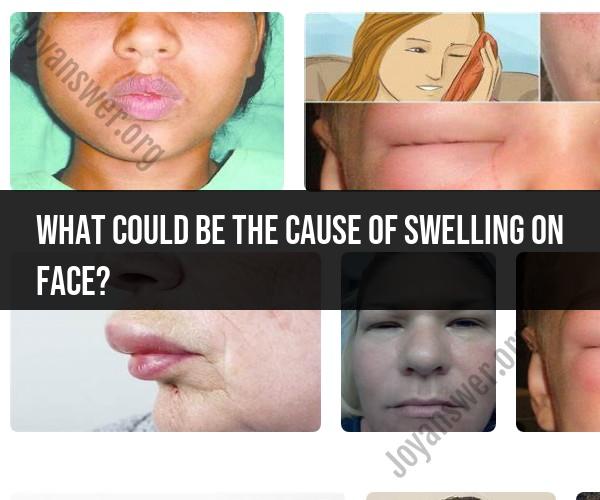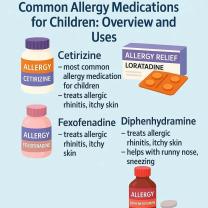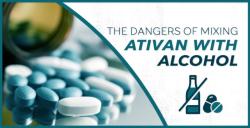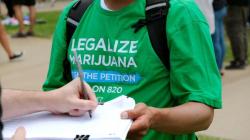What could be the cause of swelling on face?
Facial swelling, also known as facial edema, can have various causes, ranging from minor and temporary issues to more serious medical conditions. The specific cause of facial swelling may vary depending on the location of the swelling (e.g., cheek, eyelid, jaw) and accompanying symptoms. Here are some common causes of facial swelling:
Allergic Reaction: Allergies to foods, medications, insect stings, or other allergens can cause facial swelling. This type of swelling often occurs suddenly and may be accompanied by itching, hives, or difficulty breathing.
Infection: Infections of the face, such as dental abscesses, sinusitis, or skin infections, can lead to localized facial swelling. These infections may be painful and may cause redness and warmth in the affected area.
Injury or Trauma: Facial injuries, such as fractures, contusions, or soft tissue injuries, can result in swelling of the affected area. Swelling may develop immediately after the injury or over time.
Sinusitis: Sinusitis, an inflammation of the sinuses, can cause swelling around the eyes, cheeks, or forehead. It is often accompanied by nasal congestion, facial pain, and a feeling of pressure.
Oral Health Issues: Dental problems, including infected teeth or gums, can lead to facial swelling, particularly around the jawline and cheeks. This type of swelling is often painful.
Angioedema: Angioedema is a condition characterized by deep-seated swelling beneath the skin's surface. It can affect various parts of the body, including the face. Angioedema can be triggered by allergies, medications, or genetic factors.
Medications: Some medications, such as angiotensin-converting enzyme (ACE) inhibitors used to treat high blood pressure, can cause facial swelling as a side effect in some individuals.
Medical Conditions: Certain medical conditions, such as kidney disease, heart failure, or thyroid disorders, may lead to generalized facial swelling. This type of swelling is often associated with other systemic symptoms.
Fluid Retention: Fluid retention, often due to dietary choices, hormonal changes, or kidney problems, can lead to swelling in the face, particularly around the eyes.
Insect Bites or Stings: Bites or stings from insects, such as bees, wasps, or spiders, can cause localized swelling and redness on the face if bitten in those areas.
Underlying Allergies: Chronic allergies or sensitivities to certain foods, substances, or environmental factors can result in mild facial swelling over time.
Systemic Allergic Reactions: In severe cases, systemic allergic reactions, such as anaphylaxis, can cause widespread facial swelling, along with other life-threatening symptoms. This is a medical emergency.
If you experience facial swelling that is severe, occurs suddenly, is associated with difficulty breathing, or is accompanied by other concerning symptoms, seek immediate medical attention. A healthcare provider can help diagnose the underlying cause and recommend appropriate treatment. Mild or recurrent facial swelling should also be discussed with a healthcare provider to determine its cause and appropriate management.
Facial Swelling: Exploring the Possible Causes and Solutions
Facial swelling, also known as facial edema, is a common condition that can be caused by a variety of factors. Some of the most common causes of facial swelling include:
- Allergic reactions: Allergies to food, pollen, dust, or other substances can cause facial swelling.
- Infections: Infections of the sinuses, teeth, or eyes can also cause facial swelling.
- Injuries: Injuries to the face, such as a blow to the head or a broken nose, can cause facial swelling.
- Medications: Some medications, such as steroids and certain antibiotics, can cause facial swelling as a side effect.
- Medical conditions: Some medical conditions, such as kidney disease, liver disease, and heart disease, can also cause facial swelling.
Facial Edema: Understanding and Addressing Swelling on the Face
If you are experiencing facial swelling, it is important to see a doctor to determine the underlying cause. Once the underlying cause is diagnosed, the doctor can recommend the appropriate treatment.
Treatment for facial swelling depends on the underlying cause. For example, if the swelling is caused by an allergic reaction, the doctor may prescribe antihistamines or steroids. If the swelling is caused by an infection, the doctor may prescribe antibiotics. And if the swelling is caused by a medication, the doctor may recommend switching to a different medication.
In addition to medical treatment, there are a few things you can do at home to help reduce facial swelling:
- Apply a cold compress: Applying a cold compress to the swollen area can help to reduce inflammation and swelling.
- Elevate your head: Elevating your head when you sleep can help to reduce fluid buildup in your face.
- Reduce your salt intake: Eating too much salt can cause fluid retention, which can worsen facial swelling.
- Avoid alcohol and caffeine: Alcohol and caffeine can also cause fluid retention, so it is best to avoid them if you are experiencing facial swelling.
Facial Swelling Unveiled: Common Triggers and Remedies
Here are some additional common triggers of facial swelling and some remedies:
- Pregnant women: Pregnant women are more likely to experience facial swelling, especially in the later stages of pregnancy. This is due to the increase in hormones and fluid retention. To help reduce facial swelling, pregnant women should avoid salty foods and drinks, elevate their head when sleeping, and get regular exercise.
- People with allergies: People with allergies are more likely to experience facial swelling, especially during allergy season. To help reduce facial swelling, people with allergies should avoid their allergens, take antihistamines, and use a nasal spray.
- People with sinus infections: People with sinus infections are also more likely to experience facial swelling. To help reduce facial swelling, people with sinus infections should take antibiotics and use a saline nasal spray.
- People with tooth infections: People with tooth infections are also more likely to experience facial swelling. To help reduce facial swelling, people with tooth infections should take antibiotics and see a dentist to have the infection treated.
If you are concerned about facial swelling, be sure to talk to your doctor. They can help you to determine the underlying cause and recommend the appropriate treatment.











